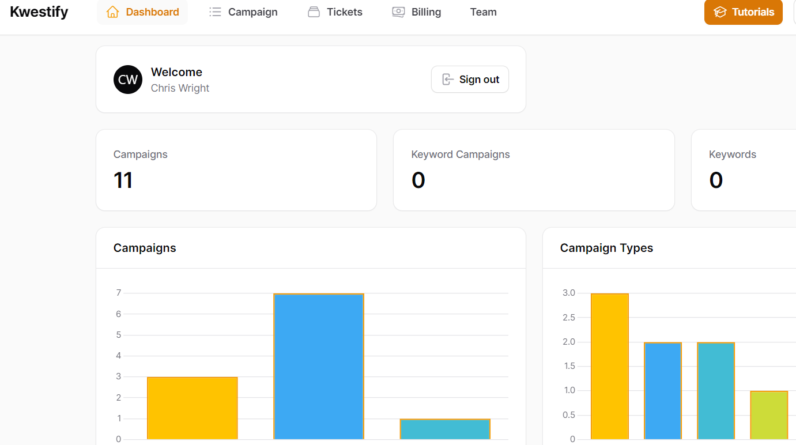
Are you curious about how to steer clear of affiliate marketing scams? Look no further! This article will provide you with valuable insights on how to protect yourself from falling victim to fraudulent schemes in the affiliate marketing industry. It’s important to be informed and vigilant when navigating this field, and we’ve got you covered. So, let’s jump right in and discover the key strategies to avoid affiliate marketing scams. Affiliate marketing can be a great way to earn passive income and work from home, but it’s essential to approach it with caution. With so many scams and fraudulent programs out there, it’s crucial to do your research and make informed decisions. In this article, we will walk you through the steps to avoid affiliate marketing scams and ensure you’re entering into legitimate and profitable opportunities.
Research the Company
Before getting involved with any affiliate marketing program, it’s important to research the company thoroughly. Start by visiting their website and examining their online presence. Look for information about their history, mission, and values. A reputable company will have a professional website that provides clear and transparent information about what they do and how their affiliate program works.
While on their website, be sure to look for reviews and testimonials. Check if there are any testimonials from affiliates who have been successful with the program. Look for reviews from other affiliates or users who have had experiences with the company. This will give you insights into the company’s reputation and whether their program is worth pursuing.
Also, take the time to verify the company’s credentials and track record. Look for any awards or recognition they have received. Additionally, research their past performance by checking if there have been any complaints or legal issues involving the company. You can search for news articles or online forums to get a better understanding of the company’s reputation.
Understand the Business Model
It’s crucial to have a solid understanding of the basics of affiliate marketing before diving in. Take the time to educate yourself about how affiliate marketing works and the different strategies involved. This will help you make informed decisions and navigate the industry more effectively.
Next, identify legitimate affiliate marketing programs. Look for programs that have been around for a while and have a proven track record of success. Avoid programs that promise quick wealth or use high-pressure tactics to lure you in. Legitimate programs will focus on providing value to their affiliates and prioritize long-term success.
Differentiate between multi-level marketing (MLM) and pyramid schemes. MLM programs are legal and involve earning commissions on sales of products or services. However, pyramid schemes are illegal and primarily focus on recruiting new affiliates for earnings. Be cautious of programs that require recruitment as the primary source of income.
Read the Terms and Conditions
When considering an affiliate program, it’s essential to read and thoroughly review the terms and conditions. Look for any hidden fees or obligations you may be unknowingly signing up for. Some programs may require a certain number of sales or a minimum amount of advertising spend.
Ensure that the program offers fair commission structures and payment methods. Look for programs that provide clear details on how commissions are calculated and when payments are made. You’ll want to avoid programs that have complex or unfair commission structures, as this can impact your ability to earn money.
Additionally, check for any restrictions or limitations on promotional strategies. Some programs may have strict guidelines on how you can promote their products or services. Ensure these guidelines align with your marketing strategies and that you can effectively promote their offerings.
Research the Products or Services
The success of your affiliate marketing endeavors heavily relies on the quality and reputation of the products or services you promote. Take the time to investigate the products or services being offered by the affiliate program. Look for reviews, ratings, and testimonials from customers who have used the products or services.
Ensure that the products or services are relevant and beneficial to your target audience. You want to promote offerings that align with the needs and interests of your audience. This will increase the likelihood of conversions and commission earnings.
Moreover, check if there is a legitimate market demand for the products or services. You can research keywords related to the offerings and see if there is a significant search volume. This will give you an idea of whether people are actively seeking these products or services.
Avoid High Commission Rates and Unrealistic Promises
While high commission rates may seem enticing, they can often be a red flag for a potential scam. Be cautious of affiliate programs that offer exceptionally high commission rates. These programs may be trying to attract affiliates with the promise of quick and easy money. In reality, earning high commissions typically requires a lot of work and effort.
Similarly, be wary of programs that make unrealistic promises or guarantee a specific income. Affiliate marketing is a business, and success depends on various factors, including your marketing efforts, target audience, and the quality of the products or services. No legitimate program can guarantee a specific income without considering these variables.
Evaluate the feasibility of earning income based on the commission structure. Consider the average commission rate per sale and the number of sales required to generate a reasonable income. If the numbers seem unrealistic or unattainable, it may be best to explore other affiliate programs.
Check for Transparent Tracking and Reporting
Choose an affiliate program that provides accurate and transparent tracking of sales and commissions. You want to ensure that you can trust the program to accurately track your referrals and provide you with accurate commission reports.
Verify the availability of real-time reporting and analytics. This allows you to monitor your progress and make data-driven decisions to optimize your marketing efforts. Real-time reporting can also help you identify any issues or discrepancies in your commissions.
Check for user-friendly dashboards and performance metrics. A good affiliate program will provide you with tools and resources to track your performance and make necessary adjustments. Having access to actionable insights will enable you to improve your results and maximize your earnings.
Contact Other Affiliates for Feedback
One of the best ways to gather insights and feedback about an affiliate program is to engage with other affiliates. Join affiliate marketing forums or communities where you can connect with experienced affiliates. Ask questions, share your concerns, and listen to their experiences.
Experienced affiliates can provide valuable insights into the pros and cons of different programs. They can share their successes and failures, helping you make more informed decisions. However, keep in mind that everyone’s experience may vary, so it’s essential to consider a variety of perspectives.
Beware of Pyramid Schemes
To protect yourself from scams, it’s crucial to understand the characteristics of pyramid schemes. Pyramid schemes often disguise themselves as legitimate affiliate marketing programs but primarily focus on recruiting new affiliates rather than selling products or services.
Avoid programs that require recruitment of new affiliates for earnings. Legitimate affiliate programs should prioritize sales and the promotion of products or services. If the focus seems to be primarily on recruitment, it’s likely a pyramid scheme.
Be skeptical of programs with complex compensation plans. Pyramid schemes often have convoluted compensation structures that make it difficult to understand how your earnings are calculated. Legitimate affiliate programs will have clear and straightforward commission structures.
Use Caution with Personal Information
When signing up for affiliate programs, it’s crucial to protect your personal information. Be wary of programs that request excessive personal information upfront, such as social security numbers or bank account details. Legitimate programs will request the necessary information to pay you commissions but should not require sensitive data.
Verify the company’s data protection and privacy policies. Ensure that they have safeguards in place to protect your personal information. Look for programs that have secure online systems and encryption to protect your information from unauthorized access.
Trust Your Instincts
Lastly, trust your gut feeling when evaluating affiliate programs. If something seems too good to be true, it probably is. Affiliate marketing is a business, and like any business, it requires hard work, dedication, and time to succeed. If a program promises quick and effortless wealth, it’s likely a scam.
Practice due diligence and conduct thorough research before committing to any affiliate program. Take the time to compare different programs, read reviews, and understand the products or services being offered. By making informed decisions and trusting your instincts, you can avoid falling victim to affiliate marketing scams and find legitimate opportunities for success.






